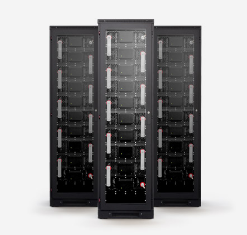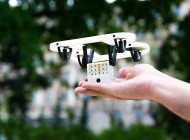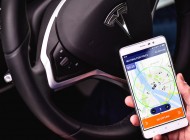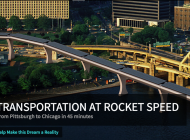In August we got some great news from 3 Estonian startups, all of them starting with an S: Scoro, Skeleton, Starship.
 Ultracapacitor manufacturer Skeleton Technologies receives €13M investment
Ultracapacitor manufacturer Skeleton Technologies receives €13M investment
Estonian startup Skeleton Technologies got €13M from a Malaysian VC investment firm FirstFloor Capital, which brings the total financing for Skeleton to €26.7M.
The startup develops and produces ultracapacitors – high-power energy storage devices with more than a million life cycles (normal batteries last a couple of thousand cycles). Skeleton Technologies uses a patented graphene-based material in the manufacture of ultracapacitors, and plans to further optimise electrode and cell design to get higher capacitance and working voltages of its products.
Currently, the company is developing the next generation of airships for industrial cargo applications and going to expand into the Asian markets. More details here.
Estonian SaaS Startup Scoro Closes $1.9 Million Funding Round
On August 23 a work management startup Scoro from Estonia banked $1.9M from Finnish Inventure, Estonian SmartCap, and Alchemist Accelerator, a Silicon Valley-based VC.
The startup, founded in 2013, offers a software solution that supports teams of professional and creative service firms across their entire workflow. The service integrates with popular business tools, aggregates business data and builds it into reports and business dashboards. The company is going to spend the money on development of new integrations and enhancement of its its automation features. Part of the investment will be used to expand the sales and support teams across Scoro’s five offices. More info here.
Starship voted the Startup of the Year by a German magazine
Starship Technologies, a delivery robot company from Estonia, was chosen as “the Startup of the Year” by the German magazine Computer Bild.
Starship is developing robots that deliver packages, groceries and food to consumers in a two-three-mile radius. The robots drive autonomously while human operators monitor them in control centres. At the end of 2015, the robots were introduced to European and American cities. They have already driven almost 7,000 miles and made over a million deliveries without a single accident. GoalEurope covered Starship a bit less than a year ago.
Cover image credit.













